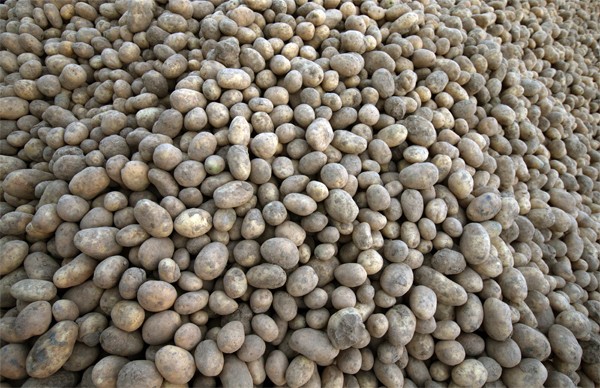The U.S. Department of Agriculture (USDA) has given the green light to a major potato supplier to plant and sell genetically modified potatoes in the United States.
J.R. Simplot Company, a chief McDonald's supplier that processes about 3 billion pounds of potatoes every year, was given the go signal on Friday to commercially grow and use what it has trademarked the Innate Potato.
"This approval comes after a decade of scientific development, safety assessments and extensive field tests," said Idaho-based Simplot.
The successful tests were done in North Dakota, Wisconsin, Washington, Idaho, Nebraska, Michigan, Florida and Indiana between 2009 and 2011.
The potatoes are genetically modified so they become more resistant to bruising and cutting, allowing them to retain or keep most of their value during harvesting, shipping or storage, according to a BetaWired report.
The technology will give potato farmers and processors a financial advantage, said the report.
The Innate Potato is also made to undergo a process called RNA interference technology, during which it is mixed with the DNA of other kinds of potatoes.
This procedure, according to Simplot, reduces by 75 percent the levels of acrylamide in the potatoes when fried.
Acrylamide has been called by the International Agency for Research on Cancer a "probably human carcinogen." The substance is produced when starch-containing foods are cooked at temperatures reaching 250 degrees Fahrenheit.
But an anti-GMO group has expressed doubt about the nature of the USDA's approval and the technology Simplot uses to process the Innate Potato.
"We think this is a really premature approval of a technology that is not being adequately regulated," said Doug Gurian-Sherman, a plant pathologist and senior scientist at the Center for Food Safety.
Gurian-Sherman's group said that the RNA interference technology used by Simplot is untested and that it actually subdues a substance that plays a vital role in the chemical constitution of a potato, along with its capacity to fight pests.



























